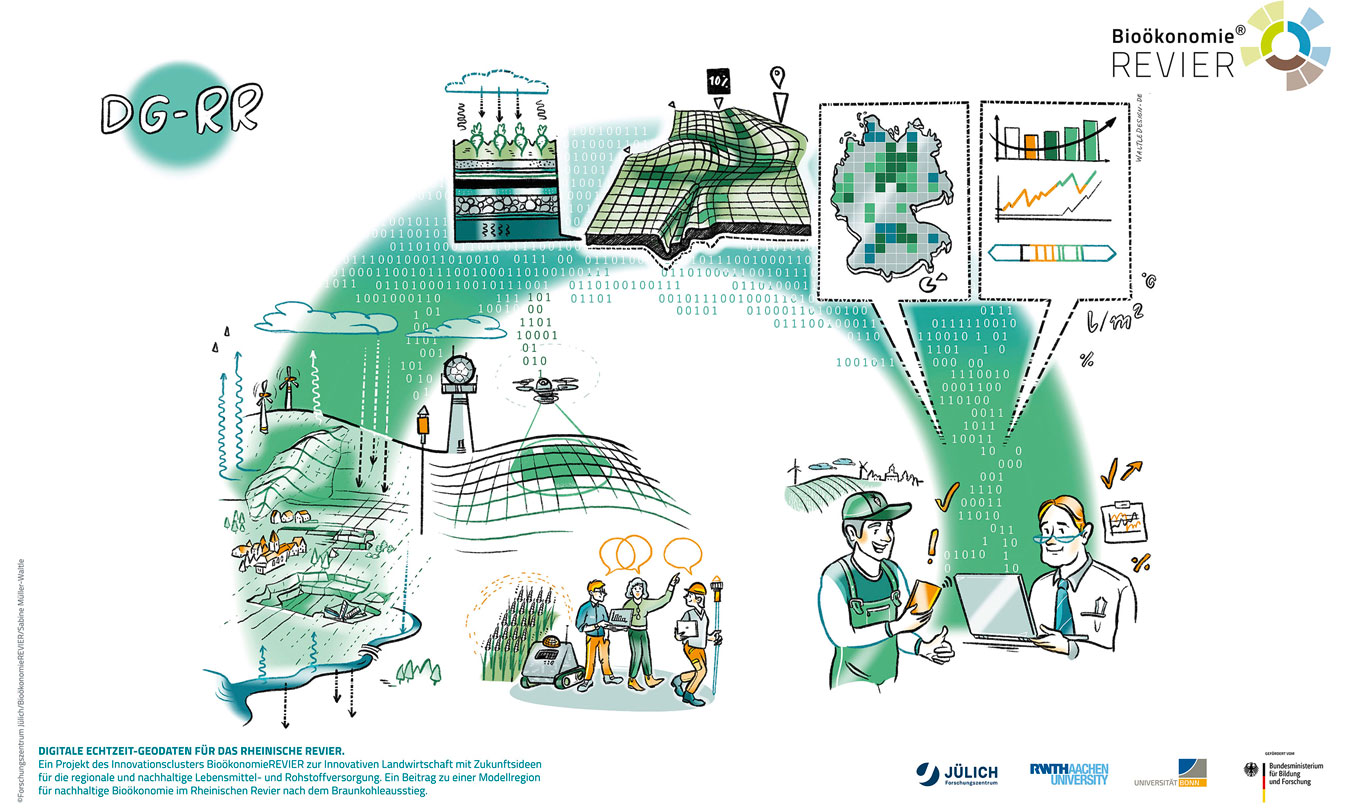
SDG 15 aims to protect, restore, and promote sustainable use of terrestrial ecosystems, sustainably manage forests, combat desertification, and halt and reverse land degradation, and halt biodiversity loss.
Overview, targets and indicators of SDG 1
Forschungszentrum Jülich is helping to realize SDG 15 by developing data and information products in application-oriented projects that record states, processes, and developments in geo-ecosystems. These products reflect user-relevant options for action that contribute to the maintenance of ecosystem services and for example halt land degradation.
Wasser-monitor
The regionally varying degrees of global climate change are altering weather and weather patterns, leading to an intensification of the water cycle and an increase in extreme events such as droughts and heavy rain. These developments have an impact on land ecosystems in general and on the water balance in the soil in particular, which in turn influences the functioning of terrestrial systems.
Forschungszentrum Jülich’s Wasser-Monitor is a platform on an interactive website that depicts the water currently available to plants as an important variable in the water cycle in the form of daily, prototype, hydrological forecasts. The simulation calculations are performed using the ParFlow model with a resolution of 611 m. A search function makes it possible to view a specific location (region, city, street) in the data.
In addition to providing a nine-day forecast, the uncertainties associated with weather forecasts area also taken into account. Users can toggle between forecasts of the water available to plants in the topsoil and the corresponding uncertainty estimations, which is particularly relevant in agriculture. The complex calculations are performed on the supercomputers at the Jülich Supercomputing Centre (JSC).
The water monitor was developed in collaboration with Forschungszentrum Jülich's Corporate Communications as part of the ADAPTER project of Forschungszentrum Jülich and the Helmholtz Centre Hereon. It is now being continued as part of the Digital Geosystem Rheinisches Revier (DG-RR) innovation laboratory of the BioökonomieREVIER project.

“The Wasser-Monitor provides easy access to innovative information on the water balance in the soil. The monitor can help during periods of drought, for example, to estimate the current availability of water and how this is expected to develop over the coming days,” says Dr. Klaus Görgen, contact person for the Wasser-Monitor and senior scientist at the Institute of Bio- and Geosciences – Agrosphere (IBG-3).


